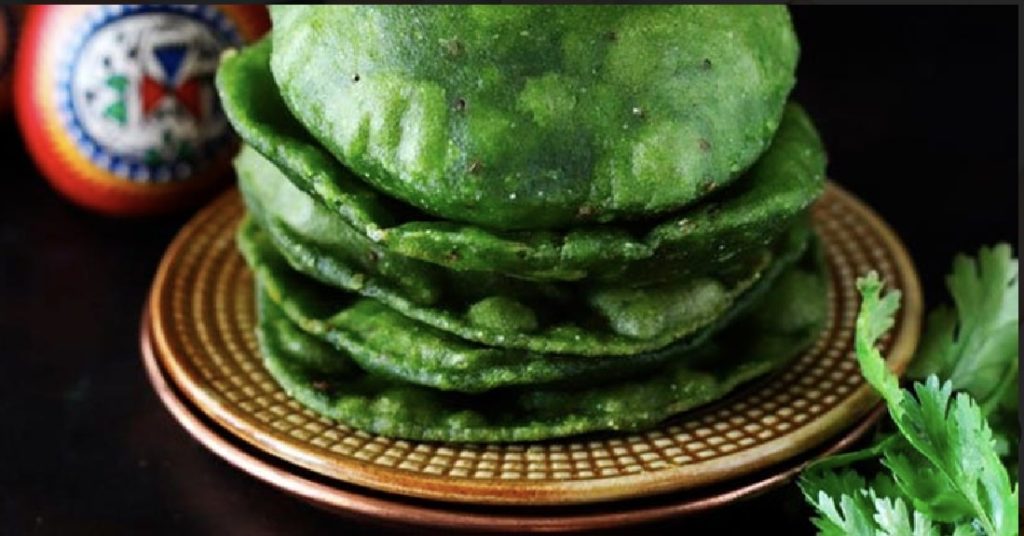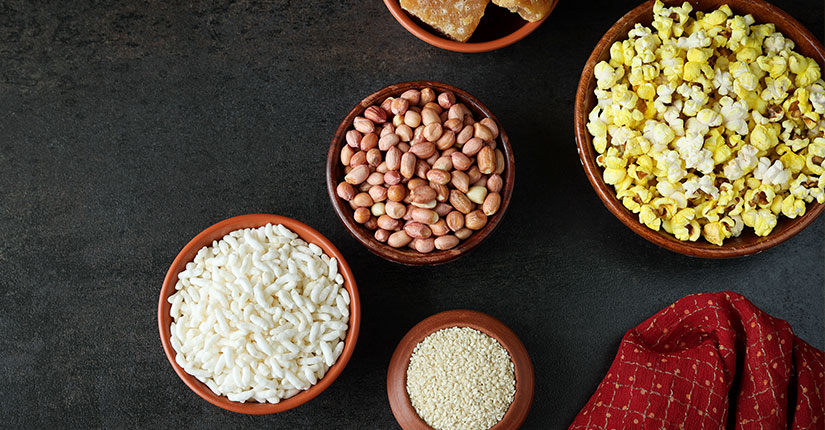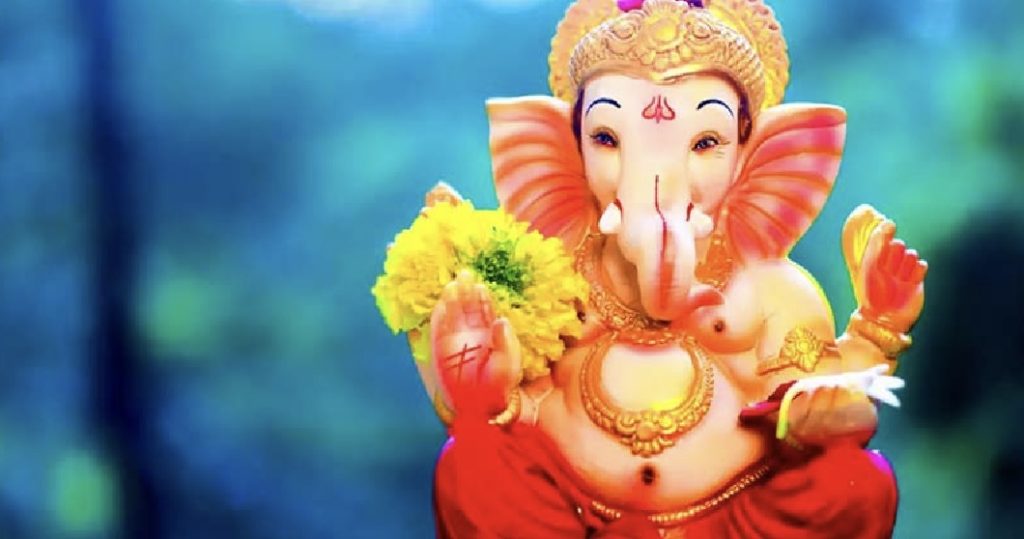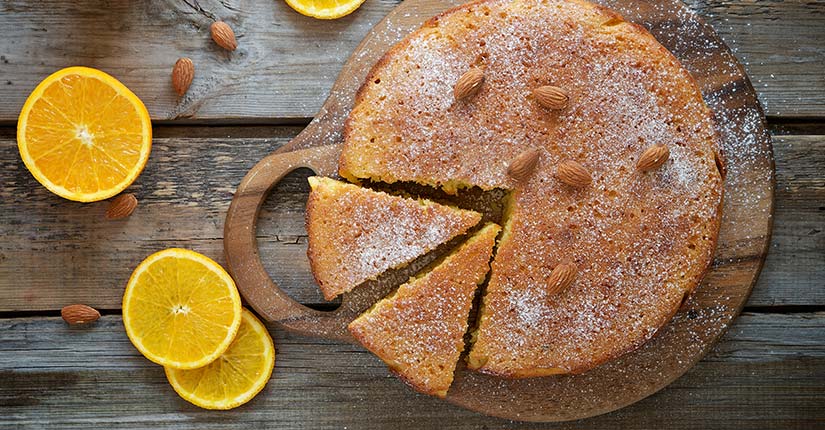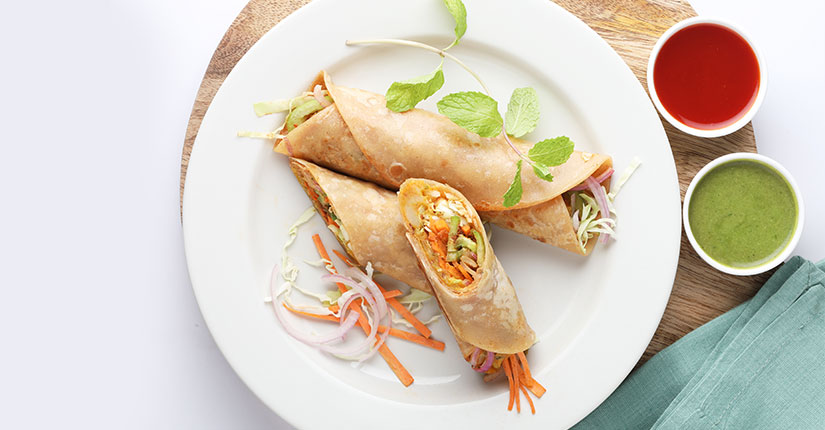Navratri festive menu
By Nmami Agarwal 21-Mar 2023 Reading Time: 7 Mins
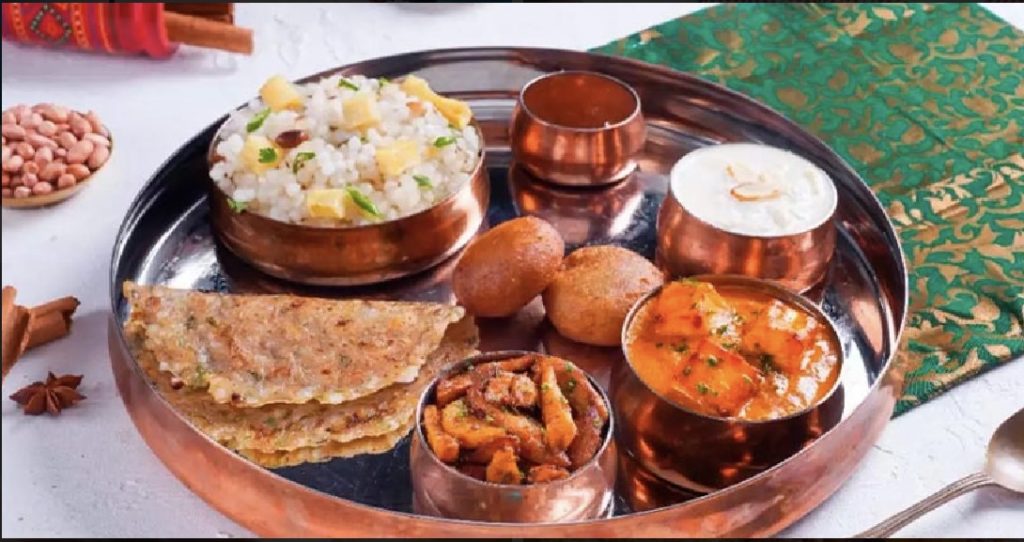
Navratri is celebrated in multiple places in India with different names but with the same concept of fasting and praying.
Navratri begins on the first day of Chaitra month of the Hindu calendar. The festival falls during the spring season and usually falls in the month of March-April.
There are few rules that are followed by the people observing fasts during the Navratri season.
- During these fasts people avoid eating meat, whole grains, alcohol, onion, garlic etc. It’s said that these foods attract negative energies and should be avoided during a seasonal change as our bodies tend to have low immunity around this time.
- Vegetables like potatoes, sweet potatoes, arbi, yam, carrots, cucumber and bottle gourd are allowed. Those observing the vrat use rock salt (sendha Namak) instead of regular salt and Samak ke Chawal instead of regular rice.
- Fasting is imperative but it is advisable to avoid starving since it can have a negative impact on one’s health. Eating small, frequent meals in a day is healthy and also in accordance with the beliefs.
Some of the foods prepared during Navratri and its significance is listed below:
- Vrat ke chawal – made from Barnyard millet is one of the healthiest options to be had during Navratri and this also works as a good replacement to our normal white rice.
Nutritionally, Barnyard millet is an important crop. It is a fair source of protein, which is highly digestible and is an excellent source of dietary fiber with good amounts of soluble and insoluble fractions.
The carbohydrate content is low and is slowly digestible releasing energy over a period of time. This makes it an ideal food during fasting. It can be had in the form of pulav or along with other vegetable preparations.
- Sabudana vada – another energy dense preparation made using sago pearls
It is a deep fried food made with sago, peanuts, potatoes which provides energy and protein required to sustain during the fasting period. A tasty preparation which is crunchy from outside but soft inside is a big hit in almost all the households of Maharashtra.
- Makhana – are lotus seeds/fox nuts which are a power house of nutrition.
Fox nuts have really high protein content. This is why they make such an important part of fasting food because a handful can provide you with energy to last the entire day.
Makhanas are rich in nutrients and are a good source of manganese, potassium, magnesium, thiamine, protein, and phosphorus and low in sodium, fat.
Makhana is very versatile, it can be used to prepare kheer with milk or it can be used to make curries to be had with vrat ke chawal.
- Vrat ka paratha – made with either kuttu ka atta/singhare ka atta
Both singhara (water chestnut) and kuttu (buckwheat) have their unique flavor and health benefits. While kuttu provides warmth, singhara has cooling properties. Both are rich in protein and fiber. They are a good source of vitamin B1, zinc, selenium, iron, magnesium and so on.
Mixing potatoes with any of these flours can help to make parathas which can be had with curd during fasting.
- Rajgira ladoo/puri – made from Amaranth seeds/flour
Another highly nutritious pseudo cereal used during fasting is Amaranth. Seeds are roasted, mixed with jaggery and nuts to make ladoos or the flour is used to make puris to be had with potato/sweet potato sabzi.
Amaranth is rich in iron, folate, protein, fiber, calcium and contains some essential amino acid “Lysine”. It is also a good source of potassium and magnesium. It has phosphorus and calcium both which are essential for our bone health.
The above listed are five specific foods eaten mostly during Navratri fasting. Apart from these, fruits available during the season like melons, mangoes, bananas, grapes are also included as a part of the diet.
Nuts like peanuts, cashews, almonds, pumpkin, watermelon seeds are also included as snacks to be had between meals since they are a good source of omega 3 fats and provide the body with adequate energy required during fasting.
The idea behind fasting is to consume healthy foods with healthy thoughts. Detox your mind and your body. If Navratri fasting is done rightly it can have amazing health benefits.

